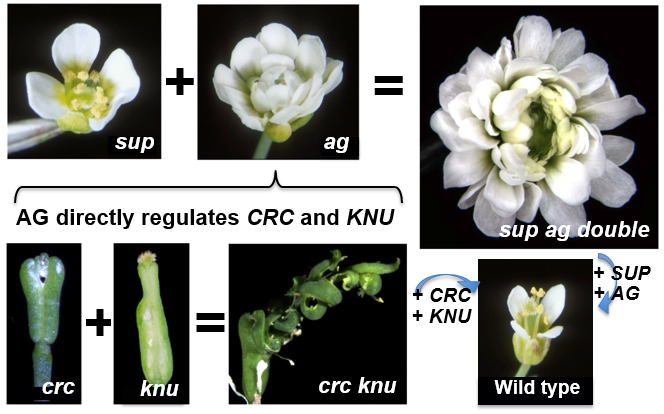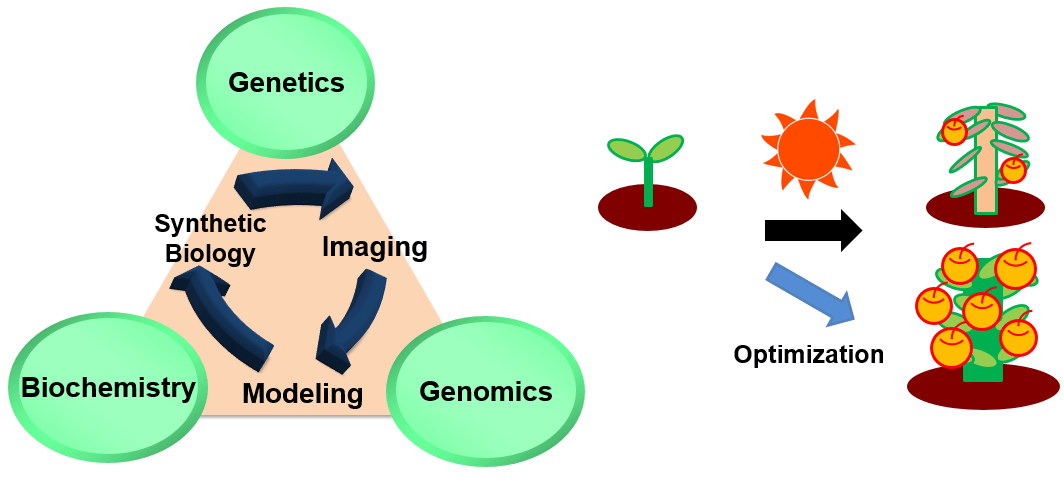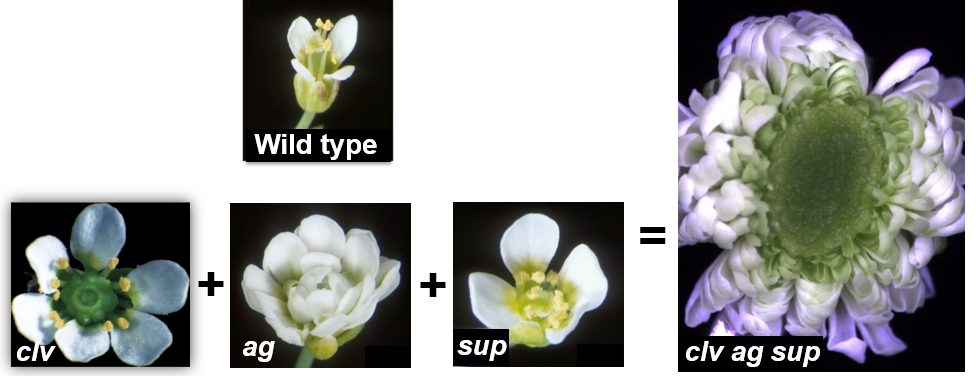Major Research Topics
We are studying how plants form flowers in adaptation to their environments. We have demonstrated that chromatin plays an important role in temporal and spatial gene expression, which governs proliferation and differentiation of determinate floral meristems. In addition to spatiotemporal gene regulation, we perform research on the molecular mechanisms that orchestrate multiple genetic events in ever-changing environments, as well as the plasticity and robustness of the developmental process. Our goal is to contribute to food sustainability in the era of global warming.
Research1
Transcriptional regulation of floral stem cell termination
Our research activities center around the molecular mechanisms that control floral stem cell maintenance and termination. Specifically, we are conducting functional analyses of the downstream genes of SUP and CRC, key transcription factors that regulate floral stem cell growth and differentiation. We identify their target genes and explore the involvement of their products in the spatiotemporal genetic regulation of floral stem cells (Figure 1).

Figure 1. Genetic analysis of floral stem cell regulation
Floral stem cells are mediated by a well-coordinated cascade of multiple regulatory reactions. Perturbations in the regulatory cascade can produce enlarged flowers that yield no seeds.
Research2
Cell–cell signaling cascades that mediate epigenetic regulation
This research includes analysis of phosphorylation-mediated cellular signaling pathways that control floral stem cell growth. In particular, we investigate how such signals are ultimately transmitted to the nucleus to regulate gene expression. Our analytical methodologies are interdisciplinary, encompassing imaging, mathematical modeling, and synthetic biology techniques. We seek to understand on the molecular, cellular, and organismal levels the coordination, plasticity, and robustness of floral stem cell control (Figure 2, left panel).
Research3
Plant environmental response and acclimation
Plants adapt to changes in their environment more readily than animals do. Plants store information about past environmental stresses for better adaptation. We investigate the molecular mechanisms by which plants store, activate, and erase these “memories” of stress. We currently work on histone modification enzymes that control heat and light signaling. Insights gained from this research will provide a technological platform for more efficient plant growth and higher crop yield (Figure 2, right panel).

Figure 2. Schematics illustrating an interdisciplinary approach to research on floral development (left) and optimization of plant growth (right).
Using multi-faceted approaches, we analyze the spatiotemporal dynamics of the gene regulatory network controlling floral development. Specifically, our interests relate to the orchestration of regulatory events and the plasticity and robustness of the developmental pathways that adapt to external stimuli. Leveraging knowledge of plant environmental responses and acclimation mechanisms, we seek to establish a technological platform for optimization of plant growth.

